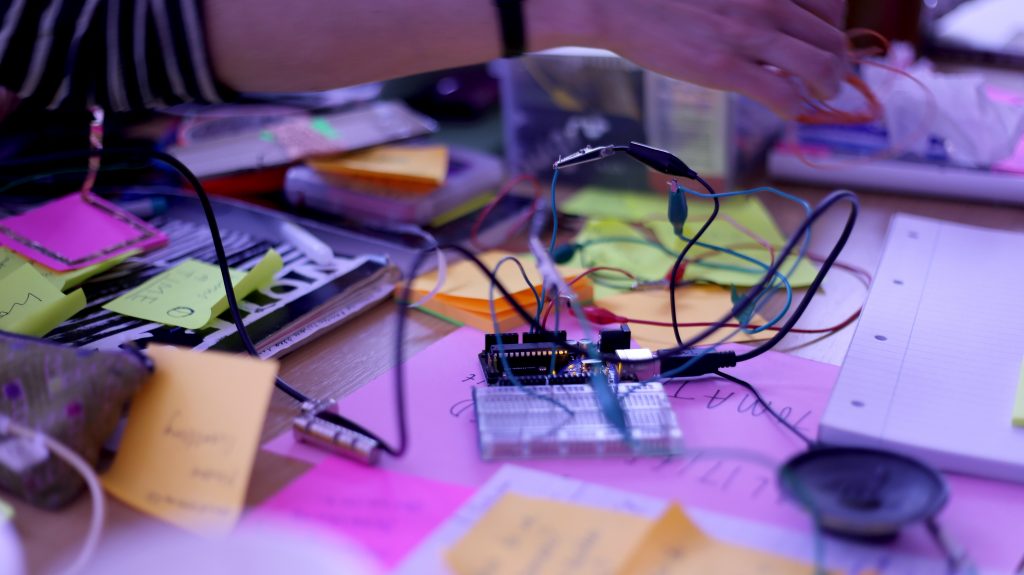Project Lead
Joanne Armitage, University of Leeds
Co-investigators
Helen Thornham, University of Leeds
Chris Birchall, University of Leeds
Supporting Partner(s)
Space 2, UK; Espacio Nixso, Argentina; C-Innova, Colombia; Media Lab MX, Mexico
Challenge
There has been a huge shift in how communities are using technology since COVID-19. This project evaluated the current practices and methods of the four NGOs from the UK and South America to develop new sharable and collaborative practices fit for the current global condition.
Methods
They worked with four groups across Argentina, Colombia, Mexico, and UK. They allowed them to share their thoughts and feelings through email and Google Drive, as well as running regular monthly discussions. They found sharing work through their voices became the richest way to share experiences, concerns, and express solidarity.
From this they created megaphones designed by Espacio Nixso and built with a poetry group in Leeds, ‘Voices Heard. ’ Like with video conferencing technologies – which often involve cracking, disconnecting and distorted voices – the megaphones disrupted the voices of poets. The megaphones as a technology of communication limited the poets—they had to speak slower, louder and clearer, and hold them close to their mouths.
Insights
Digital technologies were understood as another layer of frustration to practice alongside isolation: that labour was becoming insurmountable when juxtaposed with immediate needs for connection.
Technologies – not just the voice megaphones but also small sensory physical projects were exchanged as live tangible objects, eroding and benign, rebuilt through iterative cycles around the globe. Through these exchanges, they explored the deterioration of physical computing objects through time and space as we communicate more rapidly: technology became – like the WiFi connections – unstable and frustrating.
Far away from the conception of technology as facilitator. Instead, it was the shared narratives and practices that were paramount: basic interaction and communication around how each of us was living, working, and surviving fed into our wider conversations around sustainability, bodies, tech, and health.
Future Directions
This project cemented the existing desire to work together and to continue to explore how we might do that. They have a £75k British Council application enabling live and remote collaborations around a shared installation and event.
They are hosting a workshop in Leeds in March/April to explore these issues further hopefully in person, but online if circumstances change.
Outcomes
The group performed a poetry piece with the megaphones that drew on our conversations at Rivers of Light in Gipton Leeds. This event was hosted in Leeds but broadcast to the collaborators in Latin America. The megaphones were also used at protests in Buenos Aires.
Project website: http://eenjla.leedsnewmedia.net/ed-de/

